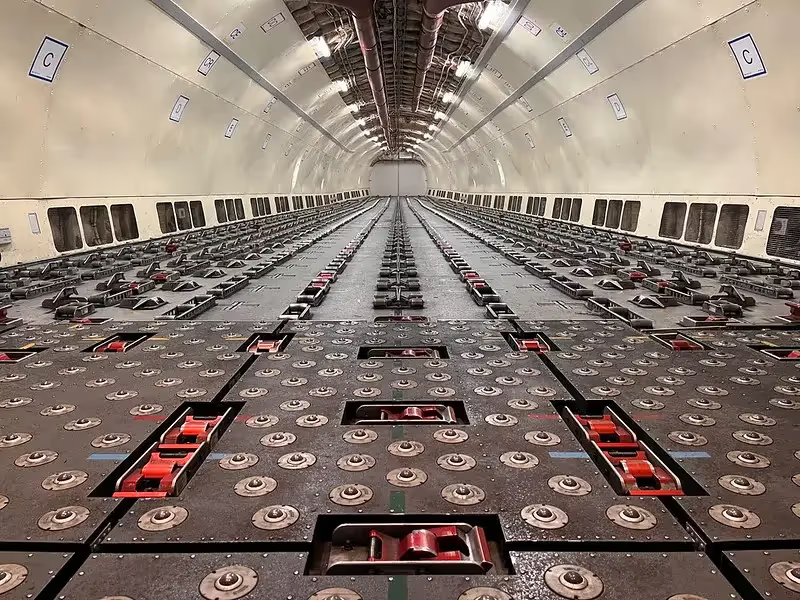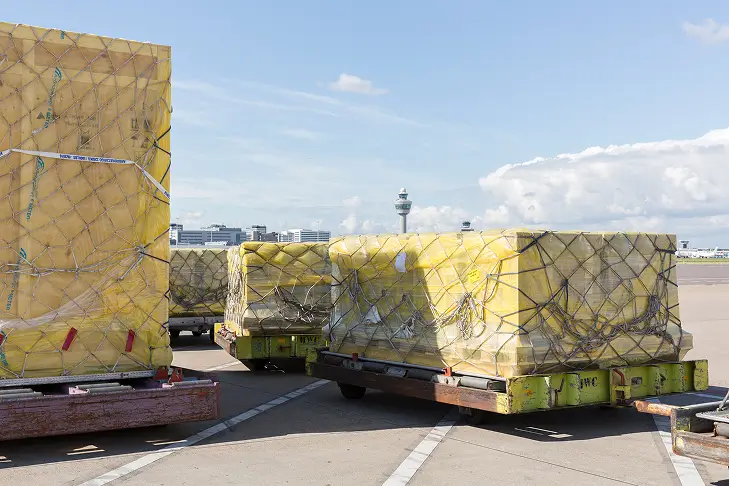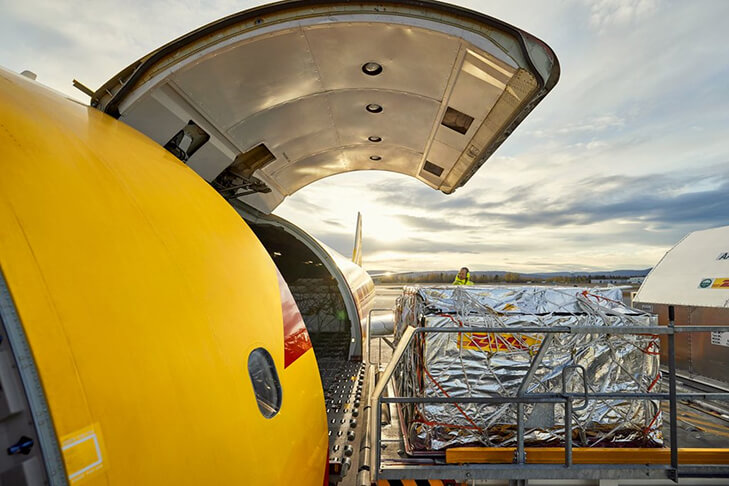Introduction to Air Cargo
In the vast world of logistics, air cargo holds a significant place. The term 'air cargo' broadly refers to all goods that are transported by air, a process that has evolved into an industry that is indispensable to global commerce. This post aims to explore air cargo and offer an in-depth look at its five most frequent uses.
Air cargo is a remarkable example of how technological advancements can reshape entire industries. It has not only revolutionised the transportation sector but also transformed global trade. Today, the world can function as a single interconnected market, primarily due to the efficiency and speed of air cargo services.
As a seasoned professional in this field, I have witnessed how air cargo has been instrumental in driving economic growth, facilitating international trade, and connecting people worldwide. It has a fascinating past, a dynamic present, and an exciting future, all of which we will explore in this article.
What is Air Freight Cargo?
Air freight cargo is a subset of air cargo that refers specifically to goods transported by airliners. These are typically large, specialised aircraft designed to carry cargo rather than passengers. These aircraft can handle everything from small parcels to large, bulky goods, providing a versatile solution for a wide range of logistical needs.
The primary advantage of air freight cargo is its speed. With the capability to cross continents and oceans in mere hours, it is the fastest mode of transportation available for goods. This speed is invaluable in our fast-paced, globalised world, where timely delivery can make or break a business deal.
Furthermore, air freight cargo is highly reliable. Unlike other methods of transportation, it is less affected by adverse weather conditions and can quickly reroute in case of unforeseen circumstances. This reliability is another reason why many businesses, big and small, rely heavily on air freight cargo.
The Importance of Air Cargo Services
Air cargo services have become a cornerstone of global commerce. They are crucial for the transportation of goods, especially those that need to be delivered quickly or over long distances. In fact, the worth of goods transported by air represents around 35% of all global trade.
Air cargo services also play a pivotal role in driving economic growth. They create jobs, both directly and indirectly, bolster international trade, and contribute to a country's GDP. Furthermore, they facilitate globalisation by connecting markets that would otherwise be unreachable.
Lastly, air cargo services provide a lifeline in emergencies. When disaster strikes, they are often the fastest and most reliable way to get relief supplies to those in need. In the next section, we'll explore this and other frequent uses of air cargo in more detail.
The Five Most Frequent Uses of Air Cargo
Air cargo is a versatile industry, serving a multitude of sectors and fulfilling various needs. However, there are five areas where its use is most prevalent.
Air Cargo Use #1: Perishable Goods Transportation
The transportation of perishable goods is one of the primary uses of air cargo. These goods include fresh fruits, vegetables, flowers, and seafood, which need to be transported quickly to maintain their freshness and quality.
Air cargo services excel in this area due to their speed and efficiency. They can deliver perishable goods to their destination in the shortest possible time, thereby minimising spoilage. Additionally, modern air freight cargo planes are equipped with temperature-controlled facilities to ensure the goods remain fresh during transit.
Air Cargo Use #2: Pharmaceuticals and Medical Supplies Transportation
Air cargo is vital for the transportation of pharmaceuticals and medical supplies. These items are often time-sensitive and require careful handling, making air cargo the preferred mode of transportation.
For instance, vaccines need to be transported under strictly controlled temperatures to maintain their efficacy. Air cargo services, with specialised temperature-controlled facilities, ensure these critical medical supplies reach their destination safely and promptly.
Air Cargo Use #3: E-commerce Deliveries
The rise of e-commerce has significantly increased the demand for air cargo services. Online shoppers expect quick deliveries, and air cargo is often the most efficient way to meet these expectations.
Furthermore, as e-commerce becomes more global, the need for air cargo services increases. It enables businesses to deliver products to customers around the world in a timely and reliable manner.
Air Cargo Use #4: Transportation of High-Value Goods
High-value goods, such as electronics, jewellery, and artworks, are often transported by air for security reasons. Air cargo services provide secure facilities and tight controls, which minimise the risk of theft or damage.
Moreover, the fast delivery times offered by air cargo reduce the time these high-value goods are in transit, further reducing the risk of loss.
Air Cargo Use #5: Emergency and Disaster Relief Supplies Transportation
In times of emergencies and natural disasters, air cargo services often provide a lifeline. They can quickly transport relief supplies, such as food, water, and medical supplies, to the affected areas.
Air cargo's ability to reach remote areas and its speed make it invaluable in these situations. It can often mean the difference between life and death for those affected by disasters.
The Future of Air Cargo Services
The future of air cargo services looks bright. With advancements in technology and the growing demands of a globalised world, the industry is set to grow further.
In the future, we can expect to see more automation and digitisation in air cargo services. This will increase efficiency, reduce costs, and improve customer service. Drones and other unmanned vehicles may also become more common, offering new ways to transport goods.
Furthermore, sustainability will become increasingly important. As concerns about climate change grow, the air cargo industry will need to find ways to reduce its carbon footprint. This could involve using more fuel-efficient aircraft, exploring alternative fuels, or optimising routes to reduce flight times.
Conclusion
Air cargo is a fascinating industry that plays a crucial role in our globalised world. Its versatility, speed, and reliability make it an essential part of the logistics chain. Whether it's delivering fresh fruits, transporting life-saving medical supplies, or getting relief supplies to disaster-stricken areas, air cargo services are there to ensure goods reach their destination quickly and safely. As technology continues to evolve and global demands increase, the future of air cargo services looks promising.
Get in touch with any questions about your air charter needs



